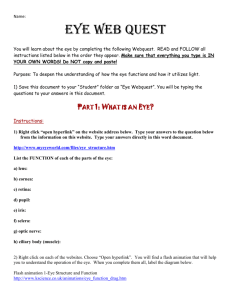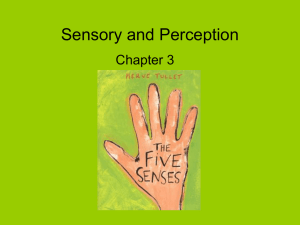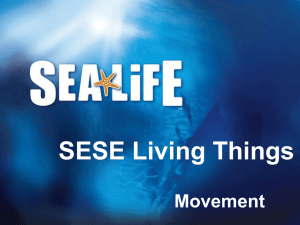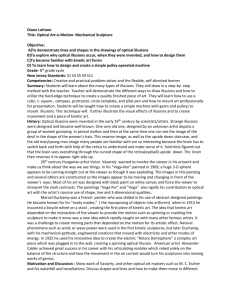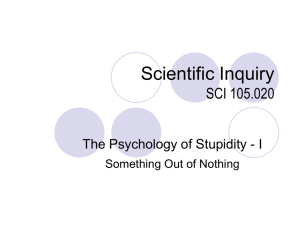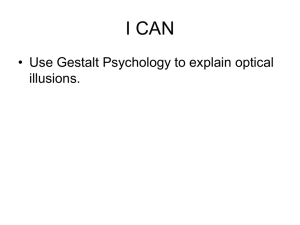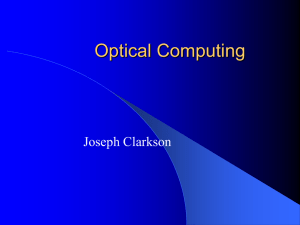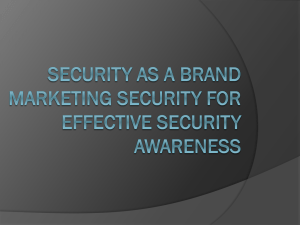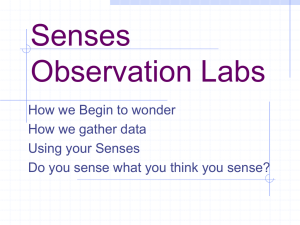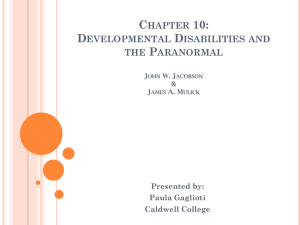Knowledge Issues
advertisement
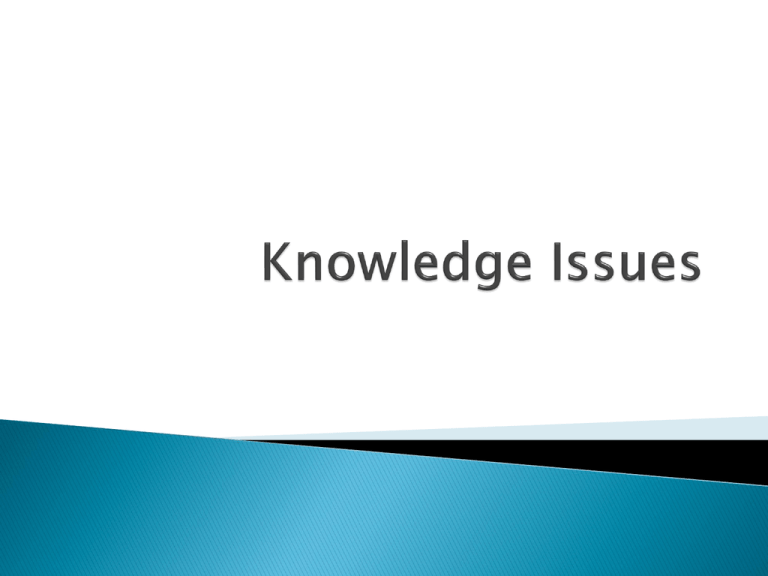
Three examples of Knowledge Issues that could be addressed in this title: ◦ To what extent do our senses give us the truth? ◦ To what extent do reason, emotion and language (and other factors) affect our sense perception? ◦ What is the scope, and what are the limits of sensory information in different areas of knowledge? Three examples of Knowledge Issues that could be addressed in this title: ◦ To what extent can reason operate in isolation from other ways of knowing? ◦ What is the relationship between “reasoning” and “truth”? ◦ In what ways and to what extent can reasoning operate in different areas of knowledge? Aspects of knowledge ◦ ◦ ◦ ◦ ◦ ◦ ◦ Acquisition Production Shaping Classification Status Acceptance Rejection Terms of ToK vocabulary: ◦ Areas of Knowledge ◦ Ways of Knowing ◦ Linking Questions Belief Certainty Culture Evidence Experience Explanation Interpretation Intuition Justification Truth Values In General ◦ Open-ended questions ◦ Have more than one possible answer ◦ Have more than one perspective ◦ Explicitly about knowledge itself Levels of Knowledge Issues ◦ Poor For a presentation, may be adequate to satisfy the criterion of KI ◦ Intermediate ◦ Good Necessary for higher achievement on written assessment (and helps with presentation as well) Level Descriptor Example An open-ended question Good Explicitly about knowledge Couched in terms of ToK vocabulary and concepts Not a Knowledge Issue Poor Interme diate Precise in terms of relationships between concepts May be: An open-ended question Explicitly about knowledge What is it about a scientific explanation that makes it convincing or unconvincing? How can we decide if acupuncture works or not? May be: A closed question Does acupuncture work? Implicitly about knowledge May be: A statement or a description of a situation A closed question Traditional medicine A subject-specific topic or question rather than about knowledge itself Real-life This could be the real-life situation for the presentation or an example in the situation essay My uncle went to an acupuncturist Physics and God Article on science and religion How can reason be used to justify religious beliefs? How do religious people come to their beliefs? Are religious beliefs reasonable? How can reason be used to justify religious beliefs? Are religious beliefs reasonable? How do religious people come to their beliefs? Physics and God Article on science and religion What, if anything, do optical illusions tell us about sense perception and truth? Optical illusions What can we learn from optical illusions? Why do optical illusions happen? An optical illusion What, if anything, do optical illusions tell us about sense perception and truth? What can we learn from optical illusions? Why do optical illusions happen? Optical illusions An optical illusion Capital punishment: why should or shouldn’t we adopt it? The execution of Saddam Hussein A book: The Execution of Saddam Hussein How can we know if capital punishment is right or wrong? What role should intuition play in justifying capital punishment? What role should intuition play in justifying capital punishment? How can we know if capital punishment is right or wrong? Capital punishment: why should or shouldn’t we adopt it? The execution of Saddam Hussein A book: The Execution of Saddam Hussein Will predictions on teenage smoking turn out to be correct? To what extent can human sciences use mathematical techniques to make accurate predictions? Stopping teenagers smoking A new government policy How can we use models to predict social behaviour? To what extent can human sciences use mathematical techniques to make accurate predictions? How can we use models to predict social behaviour? Will predictions on teenage smoking turn out to be correct? Stopping teenagers smoking A new government policy Example Intermedi ate Should we believe paranormal claims? Poor Does the paranormal exist? Is swine flu likely to kill millions? Not a Knowledge Issue Good Level What is the sixth sense? What do we mean by an epidemic? Wearing jeans in school Real-life situation A film on haunting A news report on a new swine flu An interview with Miss Anne Level Descriptor Example An open-ended question Good Explicitly about knowledge Couched in terms of ToK vocabulary and concepts Not a Knowledge Issue Poor Interme diate Precise in terms of relationships between concepts May be: An open-ended question Explicitly about knowledge What is it about a scientific explanation that makes it convincing or unconvincing? How can we decide if acupuncture works or not? May be: A closed question Does acupuncture work? Implicitly about knowledge May be: A statement or a description of a situation A closed question Traditional medicine A subject-specific topic or question rather than about knowledge itself Real-life This could be the real-life situation for the presentation or an example in the situation essay My uncle went to an acupuncturist Good To We oftenextend have to can To what what extent does assume reason some the facts reason justify influence ourare true presence continue of belieftoon paranormal thinking. paranormal stuff? does this cliams. How hinder or enable the process of knowing? Intermedi ate Should we believe paranormal claims? Poor Example Does the paranormal exist? Not a Knowledge Issue Level what extent is does To Towhat whatextent extentdo does theToTo what extent individuality emotions media affect affect ourour Miss Anne'simportant reason/ a way of influence our trust perception on medicin? of certain asauthority world issues, and can developing behavior inselfschool perception high-jeans we trust it? torwards in wearing schoolers? Miss Anne right about Are news saying the IsWhy why the do we trust should we wear thinking that we truth about the Swine medicine? jeans in school? shouldn't wear Flu? uniforms? How Is it mandetory useful are to wear Is swine flu likely to uniforms? jeans in school? kill millions? What is the sixth sense? What do we mean by an epidemic? Wearing jeans in school Real-life situation A film on haunting A news report on a new swine flu An interview with Miss Anne Not a Knowledge Issue Poor Intermedi ate Good Level Real-life situation Example Is what we learn at any To what extend does point in time certain, if the social medias we are likely to change change our our minds and interpret interpretation of reality, things differently as we and does it change our gain more experience? behavior? Why should we trust What is the relationship Are the social networks of maturing senses and scientific trust of chocolate helping bad to blame for or perceptions of truth and behavior? mood? knowledge? Will chocolate help your Can social medias Does our capacity to bad mood? change our behavior? learn change as we Can you prove through emotion and sense perception the changes that chocolate has or doesn’t have in you? grow older? Does chocolate taste good? Eating chocolate What are social medias? You notice details you didn’t before. Social medias and mass Revising a childhood behavior book. ◦ To what extent do our senses give us the truth? ◦ To what extent do reason, emotion and language (and other factors) affect our sense perception? ◦ What is the scope, and what are the limits of sensory information in different areas of knowledge? ◦ To what extent can reason operate in isolation from other ways of knowing? ◦ What is the relationship between “reasoning” and “truth”? ◦ In what ways and to what extent can reasoning operate in different areas of knowledge? Assumptions Main Points Counterclaims Explored Justified Argument or Example Perspectives Explored Relevant Knowledge Issue Examples Explored To KI Links WoKs & AoKs Implications Knowledge Issue Main Points ◦ Statements being made These are your paragraphs Examples Different Perspectives Links Counterclaims Implications Underlying Assumptions ◦ Relevant and Effective ◦ Another view on your topic or concept raised ◦ Between KI, WoKs, and AoKs ◦ An argument against a statement you are trying to justify ◦ What does your argument imply? ◦ What are you assuming? Knowledge Issue Knowledge Issue ◦ To what extent do our senses give us the truth? Assumptions ◦ That truth is a belief that is justified. Main Points ◦ Senses bring us knowledge about the world. ◦ Limited senses limit our knowledge ◦ Senses can give us faulty knowledge ◦ I can share my experience with others To what extent can reason operate in isolation from other ways of knowing? Main Points ◦ Emotion can not be understood without reason. ◦ Sense perception can record data about the world around us, but reason evaluates, compares, and concludes. ◦ Language provides the medium to communicate but reason gives that communication meaning. Knowledge Issue Knowledge Issue ◦ To what extent do our senses give us the truth? Assumptions ◦ That truth is a belief that is justified. Main Points ◦ Senses bring us knowledge about the world. ◦ Limited senses limit our knowledge ◦ Senses can give us faulty knowledge ◦ I can share my experience with others To what extent can reason operate in isolation from other ways of knowing? Main Points ◦ Emotion can not be understood without reason. ◦ Sense perception can record data about the world around us, but reason evaluates, compares, and concludes. ◦ Language provides the medium to communicate but reason gives that communication meaning. Assumptions Main Points Counterclaims Explored Justified Argument or Example Perspectives Explored Relevant Knowledge Issue Examples Explored To KI Links WoKs & AoKs Implications
